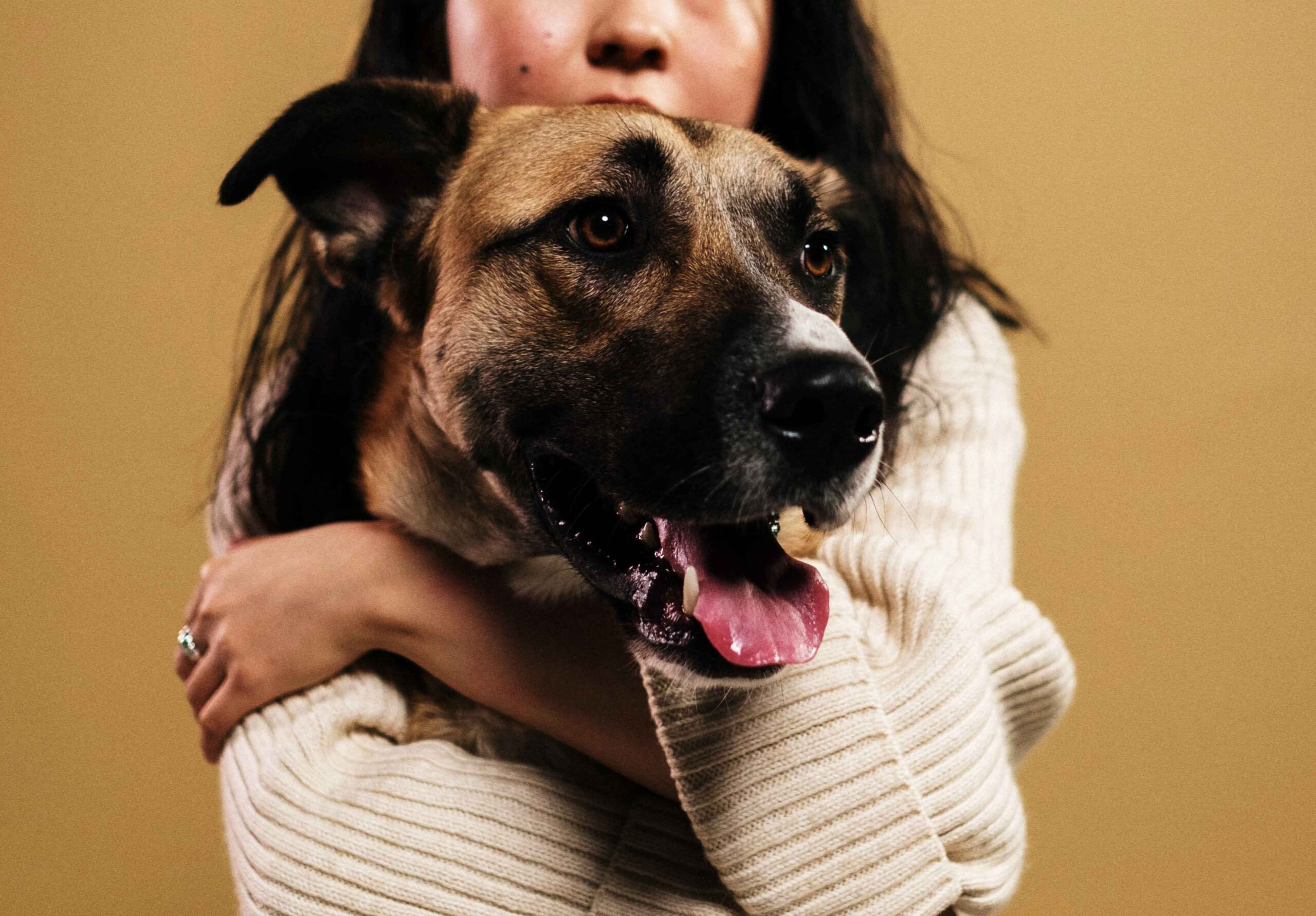
Dogs may be man’s best friend, but that doesn’t mean they love us as much as we love them.
Dogs are not capable of the kind of unconditional love humans have for one another; instead, they typically form relationships based on their self-interests, needs, and desires.
This can sometimes lead to confusion over whether or not your dog loves you. While it might seem impossible to know how your dog feels about you, there are sure signs that your pet may not feel the same way you do about them.

1) Reluctance to spend time with you
Whether it’s refusing to come when called or running away if you try to move them, a dog that isn’t fond of you won’t exactly be eager to spend time with you.
Remember: no dog is ever too tired for a game of fetch. If they don’t seem as enthusiastic as usual about their favorite pastime, there may be trouble in store.
Additionally, some dogs are easier than others at being left alone.
So if yours is particularly happy to see you after being out of your sight for an hour or so, it could mean that they feel neglected and need more attention from you daily.
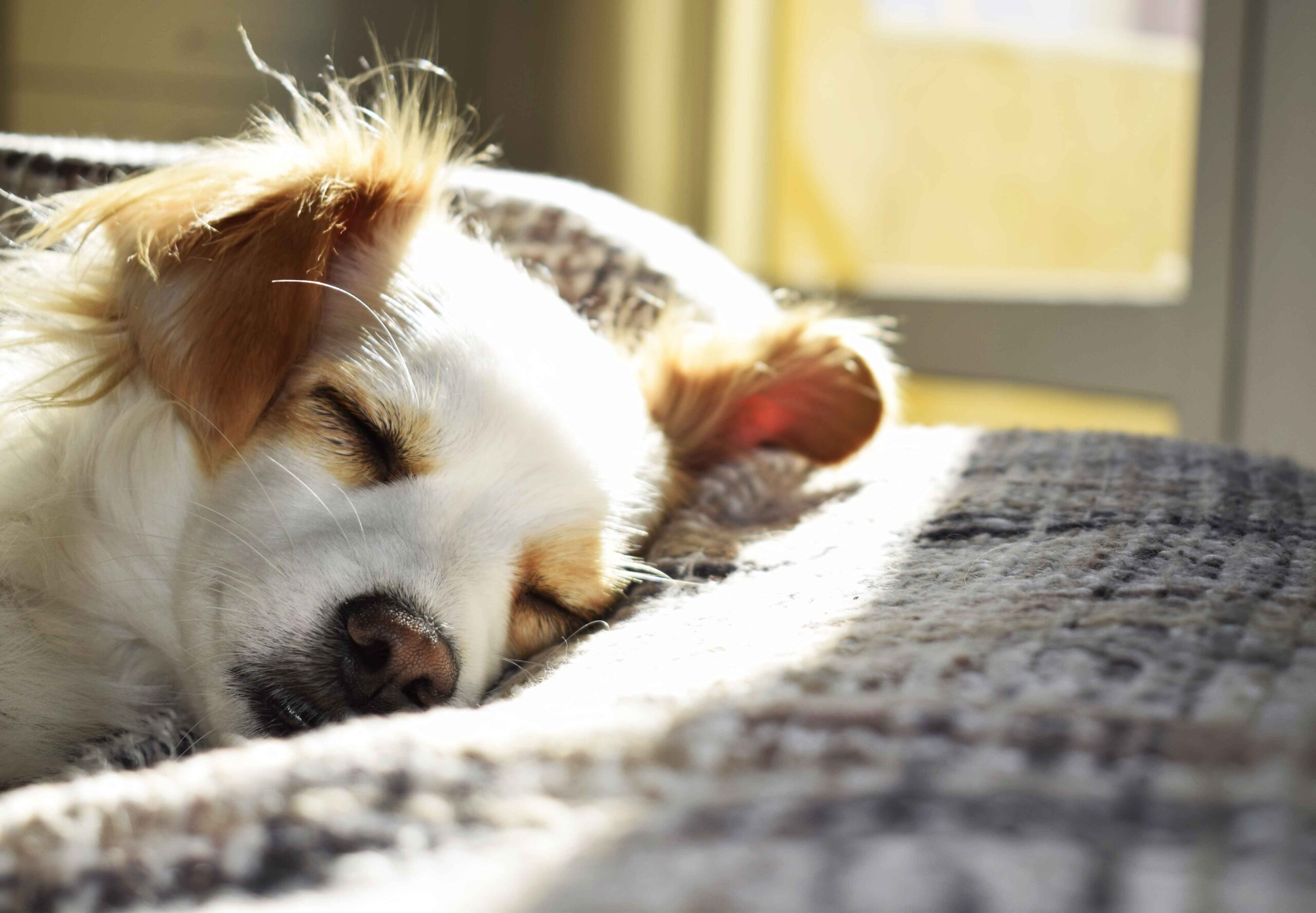
2) Avoiding affectionate gestures
, dogs may refuse your advances when you want to hug them or even pet them. They will almost always be a non-emotional but friendly greeting, however.
For example, they’ll sit with you and look at you while they do it, without looking away like some shy people.
Because of their ability to read us so well, they can understand when we want affection and will act accordingly—or not! We should respect this part of their nature if we genuinely care about our dogs’ feelings.
Sometimes dogs don’t want your attention for one reason or another; maybe they are busy concentrating on something else at that moment or are tired from playing outside with other animals and kids too long already.
3) Barking at you on sight
Dogs bark when they’re scared or uncomfortable. If your dog seems to get upset every time you come home, that might be a sign they’re not as thrilled to see you as you think.
It could also be a sign of trouble; if your dog is generally kept outside in an enclosure or kennel, it’s possible they’re barking because of boredom and loneliness instead of because they’re scared or unhappy with their living situation.
Check out our guide on signs your dog doesn’t love you for more information on telling these two behaviors apart.
4) Growling at you when you do something
If your dog growls at you when you try to move them, take a step closer, or whatever else you’re doing, it’s not because they hate your guts.
They might be afraid of what’s happening, or perhaps they are trying to protect themselves or their belongings.
If they don’t like something you do – give them a treat! Whenever they see that thing you do coming again – make sure they get rewarded! At first, it may seem as if it didn’t work, and they still don’t like what you did but try it a few times, and soon enough, your dog will learn that good things happen whenever something is coming their way.

5) Refusal to walk with you on leash
Does your dog walk side-by-side with you or behind you on a leash? The answer could shed light on your relationship.
If they walk ahead of you, it might indicate that they feel dominant over you and aren’t particularly interested in being subordinate to their owner.
If they back away from you, maybe it’s because of some uncertainty about how to relate to another person.
Either way, it can indicate some ambivalence about your connection.
It’s not definite proof that your dog doesn’t love you—but it could be a red flag worth exploring further.
6) Avoidance of eye contact
When dogs approach their owners, they should make eye contact as a sign of respect and trust. Dogs that avoid eye contact or look away are usually afraid of you or insecure in your presence.
If your dog doesn’t look you in the eyes when you talk to them, give them plenty of positive attention, so they feel comfortable approaching you with confidence.
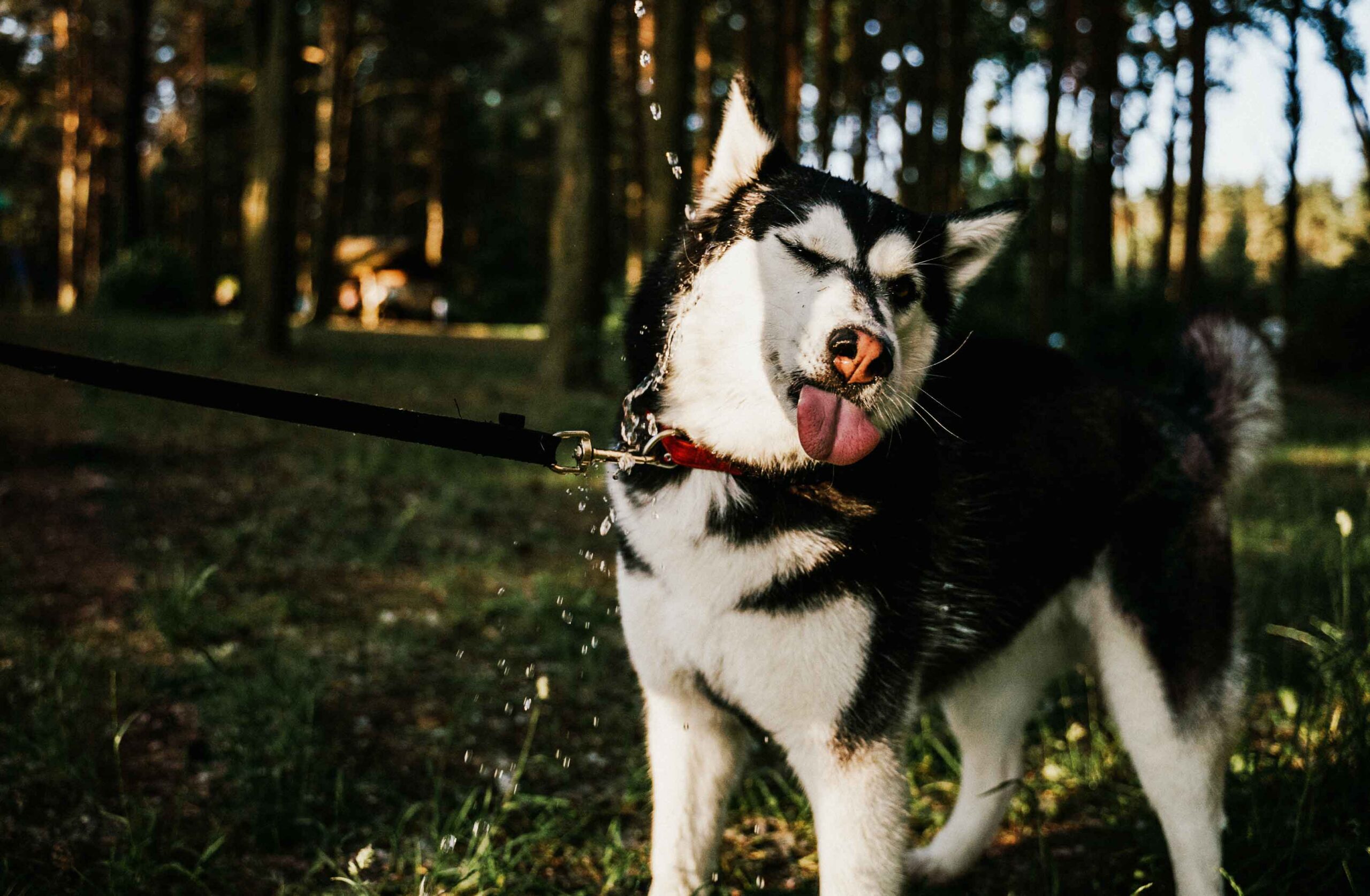
7) Sporadic whining/whimpering
Did you know that dogs can have depression? Some scientists believe so. Whining and whimpering are signs of separation anxiety and indicate unhappiness about being left alone.
While you should be happy that your dog loves to spend time with you, it’s not a great sign if they constantly whine when you leave them alone, as they will likely do in a kennel while you’re at work all day.
If your dog sounds unhappy when you leave them alone, it might be time to find another friend for them to play with so they won’t feel lonely while you’re away—that way, they can keep each other company and be happy. Or even consider fostering a second dog!
8) Constantly leaving gifts around your home.
There’s nothing wrong with spoiling your dog, and there’s certainly no harm in leaving food around for them to munch on when you go out.
But if you find yourself coming home to piles of bones in every corner of your house, then it might be time to rethink how much you spoil them.
Frugal habits like only giving dogs treat when they follow commands and putting their toys away in a bin instead of scattering them all over your apartment will cut down on costs and clutter (and improve your relationship with your puppy).
Having a clean home is easier if you don’t have doggie presents scattered all over, too! Plus, finding gifts is a lot more fun than digging around for lost toys under couch cushions.

9) It doesn’t wag its tail when it sees you
Dogs wag their tails for several reasons, but love and happiness are two. If your dog doesn’t wag its tail at you when you see it or come home, that may mean it’s not super exciting to see you.
It may also mean it’s afraid of something, so try to figure out what’s going on before jumping to conclusions.
Still, if your pup is a little indifferent or uncomfortable around you – especially after being fed treats or played with – that might be a warning sign that something is wrong. Ensure everything is okay between you and your pet before panicking too much!
10) After eating, they don’t want to cuddle.
Dogs have a strong sense of smell, making them highly picky eaters. One of my dogs only eats specific brands and varieties of kibble because she has a sensitive stomach.
If your dog doesn’t want to cuddle after eating, there could be several reasons why—they could be too full from dinner to move, they might be stressed out by something else going on in their life, or they might not like how you’re holding them.
However, remember that if your dog is super tired and you’ve just had dinner, it’s not necessarily a bad thing—it just means your pup needs rest! Give them plenty of belly rubs while they sleep it off.
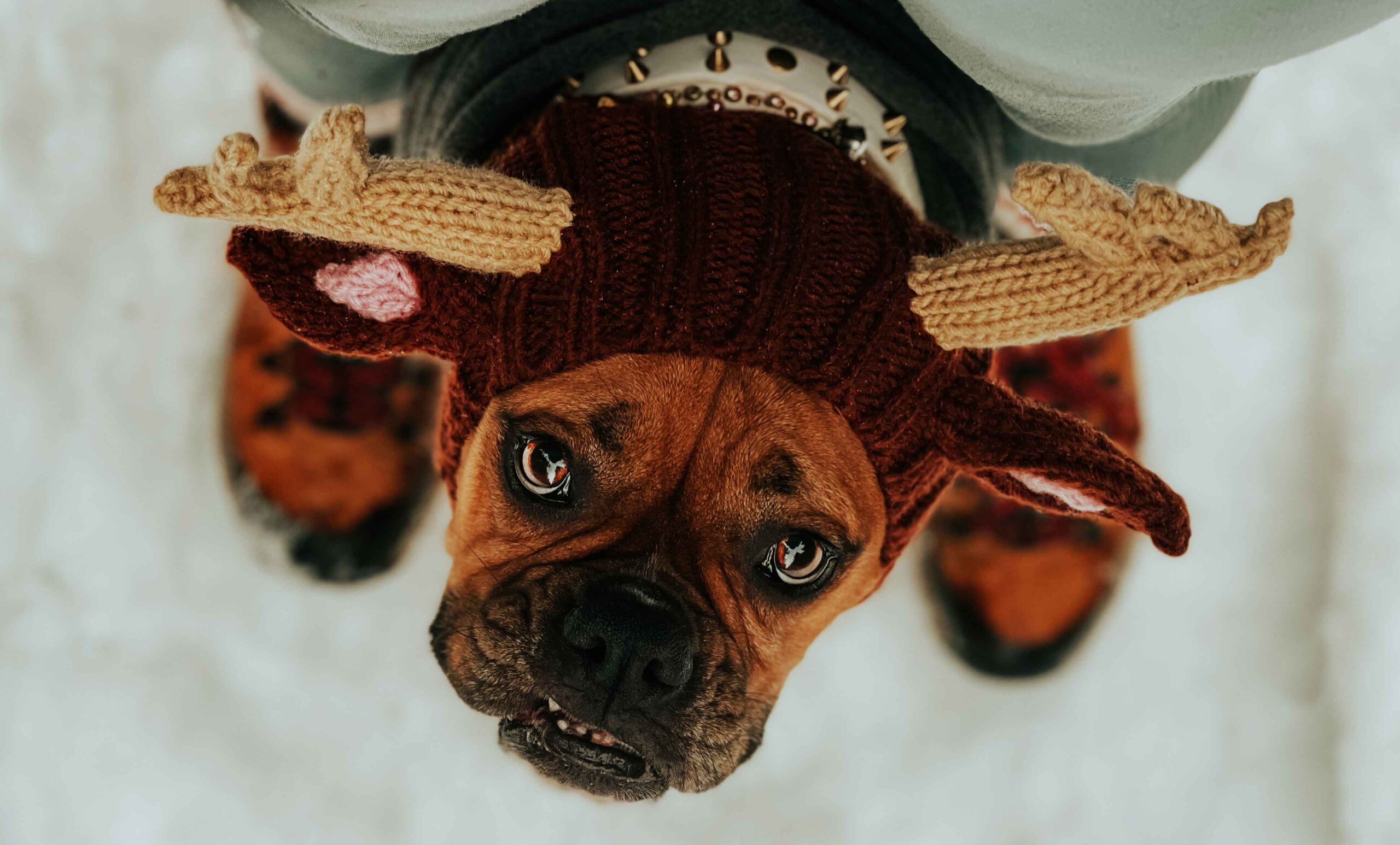
11) not making eye contact with You
Dogs are pack animals, and they don’t look straight into your eyes in a social setting. If you find yourself holding direct eye contact with your dog, there’s a good chance they might be threatened or uncomfortable by your presence.
It isn’t easy to quantify just how much eye contact a dog needs, but we know that genuine affection is communicated in more ways than one when it comes to love.
Whether that means lovey-dovey petting sessions or constant companionship, any owner will tell you their dog makes up for its lack of eye time through playfulness and cuddles.
They have faith in you and understand what you are going through.
On the other hand, if a dog does not like you, they will not meet your gaze and will back away.
Your dog tries to keep the peace and avoid an attack by looking away from you.
12) They disobey your orders.
People tend to think that training a dog is all about the dog, but it’s actually about the bonds shared by both parties.
If a dog does not trust their owner, it will be less likely to respond well to training.
Many people who bring newly adopted rescue dogs home struggle with training due to a lack of trust.
Many rescue dogs have witnessed the worst of humanity through abuse, punishment, and abandonment, and they struggle to trust their new families.
Naturally, while early training is critical, a rescue dog may take a few months to realize its new family is permanent.
Furthermore, a study published in Developmental Science found that dogs ignore information they deem unnecessary.
So, if your pet suddenly gives you the cold shoulder and ignores your commands, it’s a good sign that they’re not happy with you.

13) They don’t appear to be interested in sleeping in your room.
Many people assume that because their dog sleeps in their room, they love them. In reality, though, dogs sleep just about anywhere – on a couch, on a comfy floor cushion, or even in a hammock.
It doesn’t mean they love you or anyone else. They don’t appear interested in your company when you’re away from home.
If you leave your dog home while you head off to work and your dog appears fine with being left alone, it doesn’t mean they love you.
Humans do not always enjoy each other’s company, so dogs sometimes don’t want to hang out with anyone.
Wolves and wild dogs purposefully sleep in small confined areas with pack Members. They trust to protect against predators.
Our dogs think that we are in their pack and feel like they can count on us to protect them in the face of danger. So if your dog doesn’t want to sleep in the same room as you, there may be a trust issue.
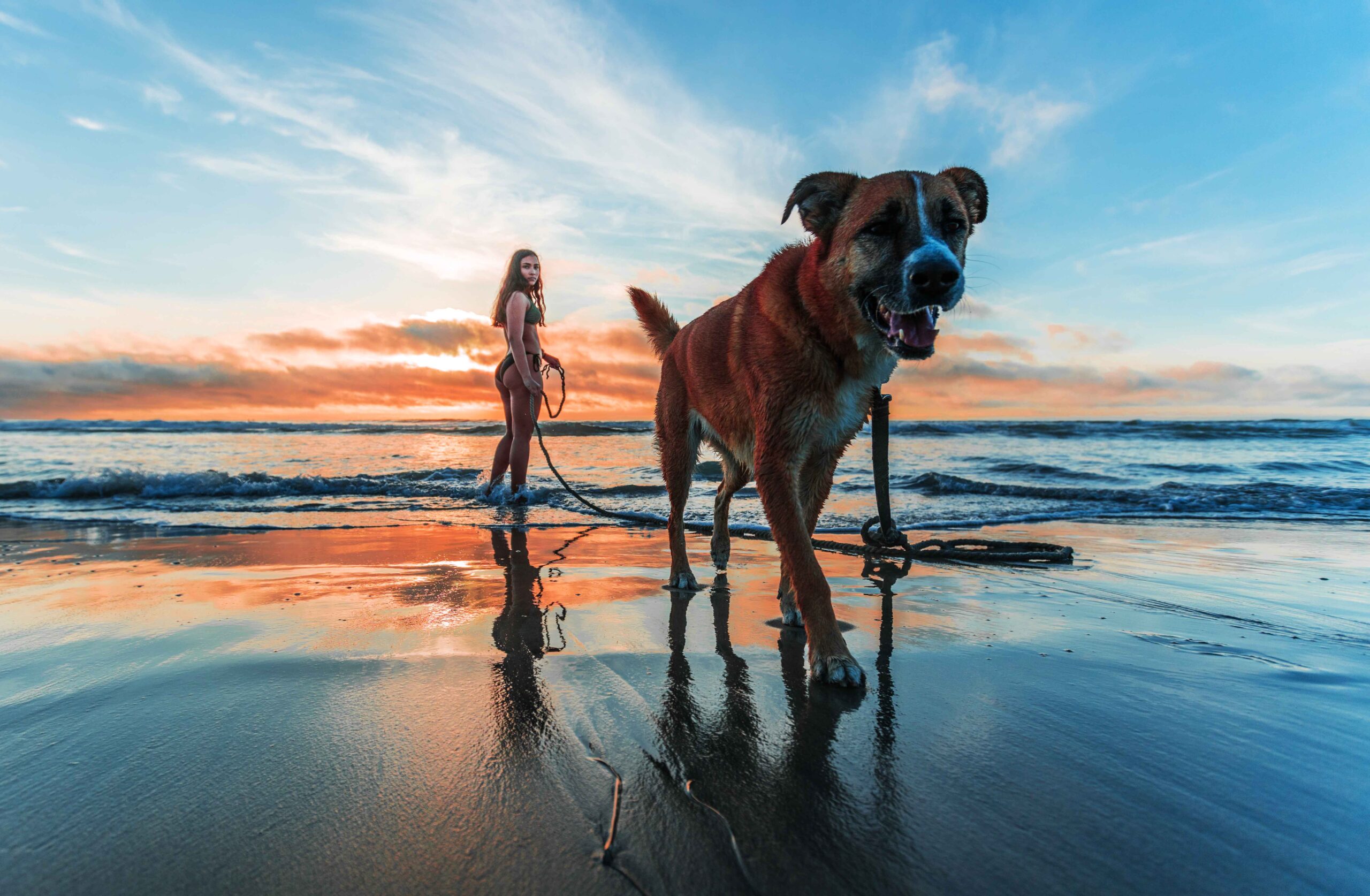
14) When they see you, they wag their tail to the left.
As we discussed in Chapter 1, your dog’s tail can tell you much about what they’re thinking. If their tail starts wagging to the left or is curved down, that means they’re unhappy.
It could indicate that something terrible happened to them recently, but it could also mean they don’t love you anymore.
They wag their tail to the left when you are around, it may be hard to catch, but a dog will wag their tail to the left if they are suspicious of another dog or a person they don’t trust.
Recent studies suggest that a tail wagging to the left indicates negative feelings. Fear or stress dogs may show this tail-wagging behavior in the presence of an unfamiliar, dominant dog or person.
Tail wagging to the right, on the other hand, indicates that your dog is happy or relaxed.
Often dogs show this tail-wagging behavior when they love their owner.
15) When you’re sleeping, they don’t relax
Dogs who feel a strong connection to their human will relax when their owner’s around and become alert if they leave.
But dogs who don’t feel much attachment might not exhibit either of these behaviors says Kersti Seksel, Ph.D., certified applied animal behaviorist and president of Animal Behavior Associates in Chicago.
Research from Adam Miklosi, DVM., PhD., at Eotvos Lorand University in Budapest, found that stressed-out shelter dogs were less likely to relax or be friendly around their owners.
If your pup isn’t relaxed when you’re around, it could mean they’re scared of you; just like people, some dogs have difficulty getting close to people they don’t trust.
Hey, don’t relax. When you’re around, sleeping puts a dog in a very vulnerable position; a happy dog will sleep, relax and expose its belly.
Dogs are usually concerned about their safety and won’t expose their vulnerable parts when they aren’t sure about their surroundings.
So if your dog doesn’t let Its guard down when you’re around, it could mean they feel uncomfortable around you on that note.
Remember that if your dog adopts a side sleeping or belly-up position, it is an indication that they have no worries.
They are relaxed and comfortable with their surroundings and have no uncertainty about it.

16) They vanish whenever you are present.
They disappear whenever you Are around.
If your furry friend insists on maintaining a distance from you, then there is a good chance they’re trying to avoid you on purpose dogs will more often disengage than opt for destructive behavior.
So if your dog disappears, whenever you come in the room, it’s a fairly clear sign that they’re feeling threatened or upset and want to get some distance, but remember, hiding is also a sign of Illness. So, if your pet frequently goes missing in your home, it’s time to call the vet.
17) They refuse your treats.
If your dog is getting treats every day and won’t take them, that might mean he’s no longer as interested in you as a friend. Or, it could be because he realizes he doesn’t have to listen to you.
After all, if you’re giving him food all day long, why should he listen? If your dog is turning down your treats, keep an eye on his behavior and see if it continues—if so, it might be time to put him in doggy daycare for a few days to see how he behaves when away from home.
This will give him something new to think about and clarify who’s boss (i.e., not him).
Most animals will show that they’re uncomfortable Around a particular person feeling scared or upset by refusing to take a treat if you’ve ever noticed that your furry friend isn’t too keen on the treats the vet hands out after giving them shots. That’s probably why.
18) They don’t give you a gift
is a thing that is given. One of the cutest things dogs do when they trust you well is toys, bones, or anything else. When your dog gives you their Tattered tennis ball as a gift, you may not be interested in it.
But the fact that they want to share it with you is a sign of genuine willingness.
This is because most dogs are very protective of their things. It’s safe for them to let you have a bite of their bone because they trust that you’ll share it with them or give it back.
Dogs may not want to share their toys with you if they don’t trust you enough.
19)They like to spend time with someone else
Dogs are pack animals and, just like people, they prefer to spend time with their kind.
If your dog only loves you when no one else is around or prefers your roommates’ company to yours, it could be a sign that they don’t care for you as much as you think.
Dogs are also more than willing to equally share affection with everyone in their pack, making them appear less devoted than other dogs who form strong bonds with their owners.
Make sure to give them plenty of love and attention; if they only show an interest in spending time with you when no one else is home, consider adopting another dog (or two!) as companions.

20) They don’t like being touched
The first thing to understand is that a dog’s love isn’t unconditional. Unlike humans, dogs don’t experience love and hate as a dichotomy.
A dog may love you very much, but he can also hate what you’re doing right now, whether it’s petting him or using his leash to go for a walk.
One of your jobs as an owner is to learn what touches a dog loves and respond accordingly.
While there may be times that your dog is just uninterested and doesn’t want to be petted if they regularly recoil at your touch, it is a sign of a problem.

